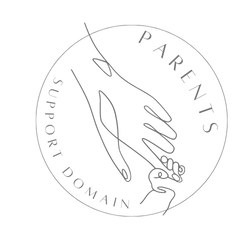Can You Drink Alcohol While Breastfeeding?
Do You Know If You Can You Drink Alcohol While Breastfeeding?
Many new mothers wonder if it is safe to drink alcohol while breastfeeding or if they must completely abstain from alcohol throughout the breastfeeding period. This is an important question, as breastfeeding provides invaluable nutrition and immune protection for infants.
At the same time, maternal alcohol consumption could potentially impair infant development and health. In this article, we will provide an extensive overview of current evidence and recommendations regarding alcohol use during lactation.
Alcohol and Breastmilk
Alcohol Transfer into Breastmilk
When a breastfeeding mother drinks alcohol, a portion of that alcohol is transferred into her breast milk. The amount that gets transferred depends on multiple interacting factors:
Mother’s blood alcohol concentration (BAC)
The higher the BAC, the more alcohol makes it into the milk. BAC depends not just on the amount of alcohol consumed but also on the pattern and pace of drinking.
Drinking the same amount of alcohol quickly on an empty stomach results in a higher peak BAC than slowly sipping a drink with food, for example.
Time since ingestion
Alcohol levels in breast milk mirror blood alcohol levels, peaking 30-60 minutes after initial ingestion. Alcohol can be detected in breast milk for 2-3 hours for each drink consumed as it is slowly cleared from the system.
Mother’s body composition 
Heavier mothers tend to transfer less alcohol into milk compared to leaner mothers when ingesting the same drink. This may be because the alcohol distributes into a larger total body water volume, lowering peak concentrations.
Pharmacokinetic studies indicate that the dose of alcohol received by the infant through breastmilk is relatively low – around 2-5% of the weight-adjusted maternal dose.
However, some individual infants, especially those born prematurely or with enzymatic deficiencies, may be more vulnerable to effects from even these small alcohol exposures.
Potential Effects on the Infant
Research on the impacts of small amounts of alcohol exposure through breast milk is mixed. In the short term, evidence shows that even low-to-moderate maternal alcohol consumption can alter infant sleep patterns, result in less milk intake at certain feedings, and potentially delay early motor development.
Heavier maternal alcohol use may result in measurable deficits in cognitive and intellectual development in the child. However, less is known about the potential subtle effects of occasional low-level alcohol use by the mother.
Some studies have found no impacts, while others suggest possible effects on development and behavior. Overall, no causal relationship has been firmly established between moderate maternal alcohol intake and reduced cognitive capabilities in breastfed infants. But lingering questions remain.
Therefore, many lactation experts advise exercising caution when drinking alcohol in any amount while breastfeeding a newborn, especially premature infants or those with medical issues. The safest option is to avoid alcohol completely during this sensitive developmental period.
Recommendations on Alcohol Use While Breastfeeding
Multiple health agencies around the world have released recommendations regarding maternal alcohol use during lactation. These range from complete abstinence to advice on limiting intake:
Complete Abstinence as the Most Cautious Approach
Some experts, especially in pediatrics, recommend complete avoidance of alcohol as the safest option while breastfeeding.
This very conservative advice reflects lingering uncertainties in the developing research on the impacts of alcohol exposure through breast milk. Recommending total abstinence removes any risks.
Limit Intake to Occasional Light Drinking
Many guidelines acknowledge that occasional light drinking (defined as no more than 1 standard alcoholic drink per day) is likely low risk for healthy infants. Some specify limiting intake to 1-2 drinks per week as an additional precaution.
Recommendations also often advise avoiding breastfeeding for 2-3 hours after drinking a standard drink to minimize infant alcohol exposure.
Also read: Healthy Foods to Eat During Pregnancy
Avoid Binge and Heavy Chronic Drinking
All experts emphasize that binge drinking and heavy chronic alcohol use should be strictly avoided while breastfeeding, as these patterns are very likely to impair infant development and health based on available research.
Binge drinking entails consuming multiple drinks in one session, usually defined as 4-5+ drinks. Heavy drinking involves averaging more than 1-2 standard drinks per day consistently.
Timing Alcohol Consumption While Breastfeeding
For mothers who choose to occasionally consume some alcohol while nursing, timing matters when it comes to minimizing infant alcohol exposure:
Avoid Breastfeeding for 2-3 Hours After Drinking Alcohol
Pharmacokinetic studies clearly show that the highest alcohol concentrations in breastmilk occur 30-60 minutes after alcohol is ingested by the mother, peaking when maternal blood alcohol levels peak.
However, alcohol can be detected in breast milk for 2-3 hours after a drink as the body slowly clears the alcohol.
Therefore, avoiding direct breastfeeding for a minimum of 2-3 hours after consuming any amount of alcohol allows time for alcohol levels to decrease significantly before the next feeding. This helps prevent peak alcohol exposure to the infant.
Also read: Marijuana During Pregnancy
Consume Alcohol Immediately After Breastfeeding Rather Than Before
If a mother plans to have an alcoholic drink, she can time it strategically around feedings. Consuming alcohol immediately after a breastfeeding session allows the most time for alcohol metabolism and excretion before the next feeding.
This maximizes the delay between drinking and the next feeding to reduce exposure. Drinking right before a planned breastfeeding session results in higher exposure to the baby.
Avoid Alcohol Consumption During Times of Peak Milk Production
Since higher blood alcohol levels mean higher milk alcohol levels, timing alcohol intake strategically around daily cycles of milk production can help minimize exposure.
For most women, milk production is highest between midnight and 6 AM due to circadian rhythms. Alcohol consumption in the late evening before this overnight peak production period can result in increased infant exposure to alcohol in milk.
Avoiding evening drinking reduces the amount of alcohol in breast milk at times when production is highest.
Limit Daytime Drinking Before Breastfeeding
Infants tend to feed more frequently during daytime hours especially newborns. Drinking alcohol during the day or early evening makes it more likely that the infant will feed again within 2-3 hours before alcohol is cleared from the system.
Developing a Responsible Alcohol Policy While Breastfeeding
For mothers who thoughtfully choose to integrate very limited, occasional alcohol intake after considering the evidence, some best practices include:
- Carefully tracking alcohol amounts to avoid exceeding recommended limits
- Consuming alcohol only with food which slows the absorption and lowers peak blood alcohol levels
- Choosing lower alcohol options when possible, like lighter beers and wine spritzers
- Opting to have just one standard drink at a time, sipped slowly, not multiple drinks in one session
- Abstaining from alcohol on occasions where heavier drinking is likely, or temptations are high
- Making alternative feeding plans for times when alcohol consumption is planned, like pumped milk or formula
- Openly communicating with the pediatrician about any alcohol use while breastfeeding to enable individualized medical advice.
- Never consume alcohol while directly caring for the baby, like during late-night feeding sessions.
Conclusion
There are still unresolved complexities and unknowns surrounding alcohol consumption while breastfeeding. The evidence suggests that occasional intake of small amounts of alcohol likely poses minimal risk to healthy, full-term infants.
However, abstaining from alcohol completely remains the simplest, most cautious way for mothers to prevent any potential exposure and eliminate any uncertainties.
For mothers who thoughtfully integrate very limited, responsible alcohol use, strict guidelines on timing and amounts should be followed to minimize infant consumption. Pediatrician consultations and careful tracking of intake help manage this balance.
Binge and heavy chronic drinking should be avoided entirely while nursing. With research-backed policies, mothers can feel empowered to make wise, informed decisions on alcohol use during lactation through open conversations with medical providers.







